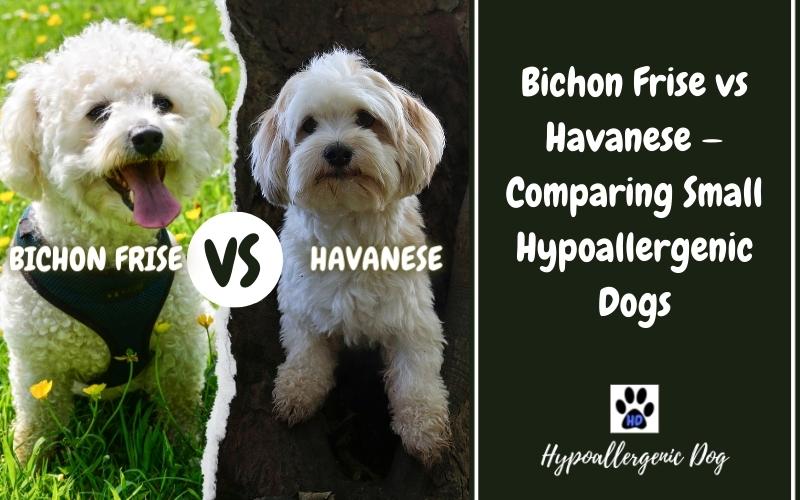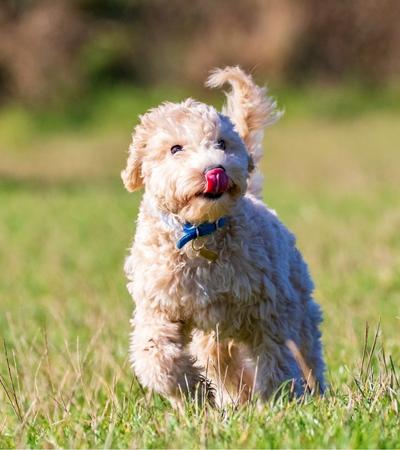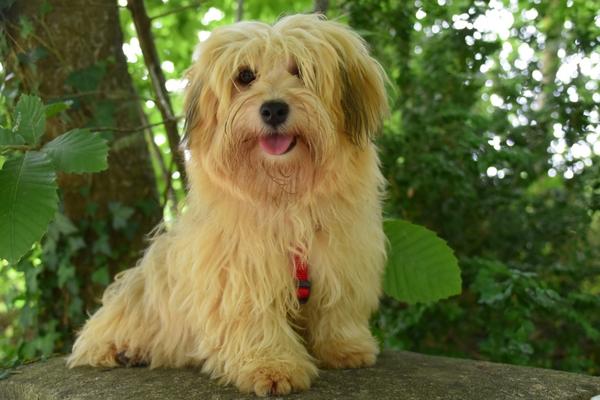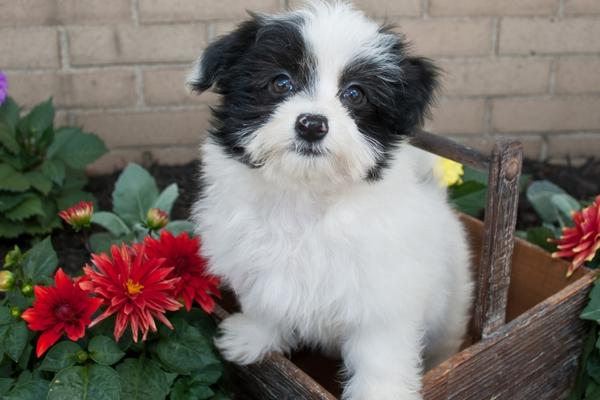Bichon Frise vs Havanese – What are the Similarities and Differences?
Havanese and Bichon Frise dogs are both popular small breeds. These cute and cuddly dogs are full of personality and charm. However, there are some key differences between these two adorable dogs.
If you’re debating between a Bichon Frise vs Havanese, this article compares the two breeds in detail. Keep reading to learn the difference between the Havanese and Bichon Frise when it comes to size, price, temperament, shedding, grooming, and exercise needs.
Bichon Frise vs Havanese Contents
Bichon Frise vs Havanese Quick Comparison Chart
Bichon Frise vs Havanese – The Breeds
Bichon Frise vs Havanese — Size
Bichon Frise vs Havanese — Temperament
Bichon Frise vs Havanese — Training
Bichon Frise vs Havanese — Price
Bichon Frise vs Havanese — Shedding
Bichon Frise vs Havanese — Grooming Requirements
Bichon Frise vs Havanese Exercise
Conclusion
Bichon Frise vs Havanese FAQs
Bichon Frise vs Havanese Quick Comparison Chart
Bichon Frise vs Havanese – The Breeds
The Bichon Frise is a small powder-puff dog originating from Europe. This breed has their roots in France and Spain but has become popular in several other countries too.
Originally bred to hunt rodents, and favored by royals in need of a lap dog. Yet today, Bichons are mostly bred for companionship. These dogs are playful and have a pep in their step. However, they’re also a loving and affectionate canine companion.
Is the Bichon Frise for Me?
The Bichon Frise makes a wonderful pet for all types of dog lovers. They have a fun-loving personality and enjoy lots of cuddles and playtime. A high-energy Bichon Frise will adapt to family life and get on well with other pets too.
This breed makes an excellent therapy dog, thanks to their gentle and compassionate nature. And, they’re a good match for seniors seeking company.
That said, the Bichon Frise can suffer from separation anxiety, so they do require a pet parent who’s going to be home more than away.
Pros
- Hypoallergenic coat.
- Playful and fun.
- Compassionate nature.
- Low exercise needs.
Cons
- Expensive.
- High-maintenance coat.
- Suffer from separation anxiety.
- Can be stubborn.
The Havanese is the national dog of Cuba. This breed comes from the same heritage as the Bichon Frise and was originally bred as a loyal lapdog. Havanese are descendants of the White Dog of Havana, the Blanquito de la Habana.
This breed is outgoing and funny, but has a shy side too. They aren’t always fond of strangers and can become anxious and bark a lot. However, the Havanese are small pooches with big charm, you’re sure to fall in love with your adorable white-coated canine.
Is the Havanese for Me?
The Havanese is a perfect breed for anyone wanting a loving and loyal companion canine, plus they make wonderful family pets. These dogs adore their owners and want to spend as much time with them as possible. Hence, if you work long hours, perhaps you need to consider a different breed.
Your Havanese will love to spend lots of time cuddling up on your lap, but they have a playful side too. Relatively low-energy, this pooch is ideal for those who aren’t particularly active, like seniors.
However, you’ll need to commit to a pretty demanding coat care schedule.
Pros
- Small and sturdy.
- Allergy-friendly.
- Fun-loving personality.
- Doesn’t require much exercise.
Cons
- Needs regular grooming.
- Yappy tendencies.
- Prone to separation anxiety.
Bichon Frise vs Havanese — Size
These cute little white dogs don’t look identical, but they are similar in size.
Bichon Frise
Small and cuddly, with a pom-pom-shaped head. Bichons are small yet sturdy and compact enough to fit in the smallest of apartments.
- Weight — between 12 and 18 pounds.
- Height — reaching around 9.5 to 11.5 inches tall.
Havanese
The Havanese is smaller than the Bichon Frise, but only marginally.
- Weight — approximately 7 to 13 pounds.
- Height — grows to around 8.5 to 11.5 inches tall.
Bichon Frise vs Havanese — Temperament
Want to know the difference between Bichon Frise and Havanese temperament? Well, these dogs are very similar in nature and personality, but there are a few contrasting characteristics.
Bichon Frise
The Bichon Frise is full of character and personality, yet they also have a compassionate and kind side. In that, Bichons are full of energy, but they’re in tune with their humans and know when you just need a cuddle.
However, the Bichon wants to spend all of their time with their humans and can become distressed when left alone.
Havanese
The Havanese is a loyal and loving tiny watchdog. You can expect your Hav to be a touch on the shy side around strangers and may bark a lot when they feel nervous or threatened. If you want a mini watchdog, get a Havanese!
Also fun-loving and comical, the Havanese will warm the hearts of everyone they meet. They thrive on being the center of attention, but like the Bichon, they’re likely to suffer from separation anxiety.
Bichon Frise vs Havanese — Training
While certain dog breeds are easier to train than others, every pet parent should invest time in house training their pooch.
Bichon Frise
The Bichon Frise is an intelligent little dog and can be trained reasonably easily. However, their stubborn side can sometimes interfere, and this breed has a bad rep when it comes to housebreaking.
To successfully train your Bichon, be patient and use plenty of positive reinforcement. Praise and doggy treats are the way forward with this breed.
That said, the Bichon loves to learn new tricks — ever eager to please their parents.
Havanese
Another small dog with a big brain that’s easy to train. And, while you shouldn’t have problems housebreaking the Havanese, like the Bichon, they can be headstrong at times.
These Cuban canines don’t pick up new tricks easily, unlike the Bichon Frise, and don’t perform as well on the agility course. However, Havanese dogs are easy to socialize and will learn basic commands and appropriate behaviors in no time.
And, don’t shout at your Havanese! If you want your pooch to learn quickly, keep training a positive experience — Havs are delicate doggies.
Bichon Frise vs Havanese — Price
Neither the Bichon Frise nor Havanese are budget breeds. But you can expect to pay more for the Bichon.
- Havanese puppies cost within the range of $1000 to $1500.
- Bichon Frise dogs have a broader price range. Some breeders sell their puppies for $1000, whereas others ask up to $4000 or more.
However, you could look at adopting a hypoallergenic dog, but there are no guarantees you’ll find the Havanese or Bichon Frise in your local rescue shelter. The smaller price tag is just one of the many benefits of adopting.
Bichon Frise vs Havanese — Shedding
Do you have dog allergies? If so, you’ll be pleased to hear that both the Havanese and Bichon Frise are hypoallergenic. But does one shed more than the other?
Bichon Frise
With a long double coat, the Bichon Frise sheds mildly throughout the year. The top layer of fur is soft to the touch and can sometimes be curly. When they shed, the released fur and dander become trapped between the two layers of their coat.
You won’t have to worry about experiencing unpleasant allergy symptoms when in the company of the Bichon Frise. This breed doesn’t release enough dander to be a problem. They lose a little more fur during the change of seasons, but it’s a tiny amount in comparison to several other double-coated dog breeds.
Havanese
The Havanese is also an allergy-friendly pooch, with a low-shedding double coat. Havs are more silky and fluffy and may shed marginally less than Bichons. If you’re particularly sensitive to dog dander, this breed is likely to be a better option for you.
Bichon Frise vs Havanese — Grooming Requirements
We had good news about shedding, but the same can’t be said for grooming! You can expect high maintenance in the coat care department.
Brushing
Both of these dogs have double coats, thus it’s best practice to brush them every day. This will remove shed hair from between the top and bottom coat layers and reduce knots and tangles.
Bathing
Havanese dogs aren’t a smelly breed, they only need to be bathed occasionally. Remember to brush your pooch before a bath and use a dog-friendly shampoo to keep their skin and coat healthy.
The Bichon Frise is a little more high maintenance and needs to be bathed at least once a month. The coat of these powder-puff dogs is easier to manage when they’re washed and clean.
Nails and Teeth
Small dogs are no exception when it comes to good oral hygiene! To keep your canine’s teeth strong and healthy, be sure to brush them 2 to 3 times a week with doggy toothpaste.
These breeds have fast-growing nails and need to be trimmed every 3 weeks or so. You can do this yourself or a professional groomer can trim their nails for you.
Grooming
The Bichon Frise is more high maintenance than the Havanese when it comes to grooming.
Their fluffy fur can be cut into different styles, and if you plan to show your dog, they will need to visit the groomers more regularly. A trim every 4 weeks is important to make sure your Bichon’s fur doesn’t cover their eyes!
On the other hand, the Havanese will only need to visit the professional groomer every 6 to 8 weeks. This breed doesn’t have such a fancy coat and can be trimmed between grooming appointments if necessary.
Bichon Frise vs Havanese Exercise
The Havanese and Bichon Frise may both be small, but they’re big on energy. These playful pooches need to be walked daily to stay happy and healthy.
Don’t have a lot of time? Don’t worry!
Both the Havanese and Bichon Frise only need 30 minutes of exercise a day. If you want, you could split this exercise time into two shorter, brisk walks.
Playtime counts as exercise too, and as energetic dogs, both of these breeds will enjoy playing around inside their home. Keeping your dog active has lots of benefits for their physical and mental health.
However, Havanese and Bichon Frise shouldn’t be overwalked. Venture too far on your daily trip to the park, and you may end up carrying your furry friend on the return leg!
Conclusion
If money is on your mind, Havanese puppies are often better on your pocket than the Bichon Frise. Also, Havs are slightly smaller, easier to train, and don’t require as much grooming.
Yet, both are fun-loving small dog breeds.
Whichever breed you choose — Bichon Frise vs Havanese — you’ll have a loyal and loving lap dog and a furry friend that’s also allergy-friendly.
Bichon Frise vs Havanese FAQs
Is a Bichon Frise a Yappy Dog?
The Bichon Frise isn’t known for excessive barking, but they can be quite vocal at times. These dogs will bark if left alone for long periods of time as they’re prone to separation anxiety. The Bichon may also be quite vocal when they’re excited or want your attention.
Should I Get a Havanese or a Bichon?
The Havanese and Bichon Frise are two affectionate and playful lap dogs. These breeds are very similar, and choosing which is best for you will often come down to your lifestyle and preferences. However, the Havanese is often easier to housetrain and a little less high maintenance in the grooming department.
What Color Are Most Havanese Dogs?
The Havanese can come in various colors, including black, white, gold, cream, brindle, and many more. Your Havanese may be pure white, or they could have a coat made up of a combination of colors. When looking at the Bichon Frise vs Havanese colors, the Havanese is available in more shades and tones than the Bichon.
Should a Havanese Be Clipped?
The coat of the Havanese will grow very quickly and needs to be trimmed regularly to stay in good condition. On average, you should aim to have your dog’s coat cut every 6 to 8 weeks. However, some pet parents choose to clip their Havanese coat short to keep it more manageable and give their dog a more tidy appearance.
Is a Bichon a Smart Dog?
The Bichon Frise is by no means the most intelligent dog in the doggy universe, but they aren’t completely clueless either. These small and playful dogs are eager to please and be trained easily by first-time dog owners. Yet, the Bichon has a stubborn streak and may be tricky to housetrain.
What Is a Havanese and Bichon Mix Called?
The mixed breed of these two dogs is called a Havachon. They’re quite small dogs and come with a range of different coat types and colors.
Is a Havanese a Good First Dog?
The Havanese could be a great dog for first-time owners as they love to spend time with their humans. They’re small yet quite robust, and they play well with children.






